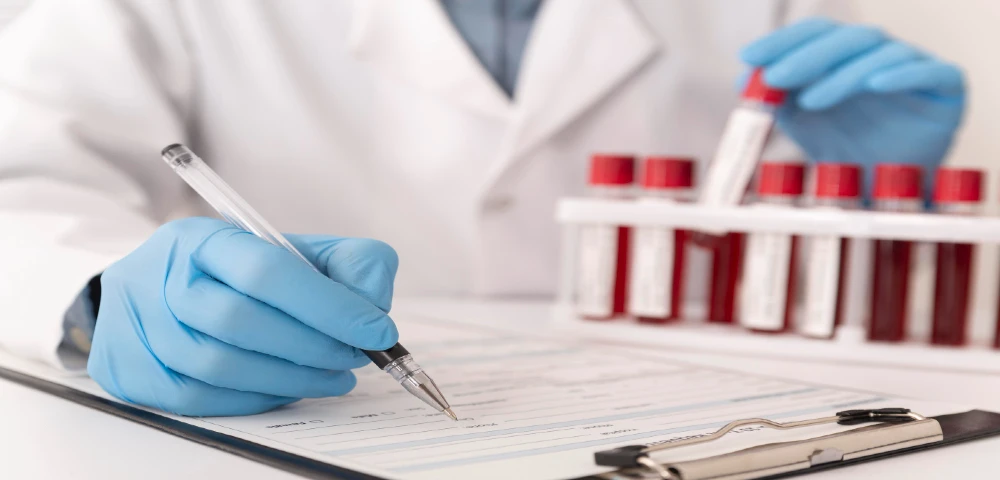December 3, 2023
Facts About STD Testing and Treatment Procedure

Contrary to popular belief, sexually transmitted diseases are more prevalent. Your health needs to be checked because it impacts millions of people globally. Tests to check for these infections are part of the std testing and treatment. Blood, swab, or urine tests are commonly used to identify illnesses such as syphilis, HIV, and chlamydia. Screening is essential for minimizing transmission to others, improving sexual health, and detecting problems early enough to treat them.
Let’s explore the fundamentals of STD screening and simplify the procedure by exposing its mystery.
What is an STD?
STDs are infections that are spread via intercourse. They include a range of illnesses, including genital herpes, HPV, gonorrhea, HIV/AIDS, and syphilis. Since these infections frequently don’t cause any symptoms, routine testing is important.
Why Should You Get Tested?
Taking control of your health is why being tested for STDs is important. You can be holding an infection and unintentionally spreading it to others even if you feel well or show no symptoms. Timely treatment is made possible by early discovery, which stops problems and further spreading.
STD Testing Basics
The testing procedure is different based on the STD being screened. Common methods are:
1. Blood Tests:
A small blood sample is taken for std testing and treatment, normally from a vein or prick on the finger. This pattern is examined to decide whether your blood contains any viruses or positive antibodies. It is an easy and fast method that helps the detection of ailments which include herpes, syphilis, and HIV. You can learn crucial information about your sexual fitness from an easy blood pattern.
2. Urine Tests:
Testing for STDs in urine is simple. Urine samples that you supply are examined for the presence of germs that could cause gonorrhea and chlamydia. This simple method offers painless alleviation in identifying these universal infections. It makes figuring out your sexual fitness status.
3. Swab Tests:
In swab testing, samples are taken from particular areas, which include the cervix or genitalia, using a small cotton swab. After that, those swabs are examined for symptoms of illnesses which include genital herpes or HPV. It’s a short and easy procedure that best calls for a swipe to get what’s needed. This method assists in the detection of particular ailments in predetermined regions for a quick examination of your sexual fitness.
STD Testing Fact:
- Confidentiality: Your privacy matters. Since STD testing is personal, most effective you and medical experts will know the consequences. These statistics can’t be accessed by all people without your consent. Maintaining confidentiality guarantees the safety of your private fitness statistics, permitting you to be aware of looking after your well-being with self-assurance.
- No Painful Procedures: Testing for STDs is painless! Simple sample collection techniques, such as giving a urine sample or a fast swab, are used in the processes. Exams are not uncomfortable, and there are no painful needles. It’s a simple procedure that won’t hurt. Thus, you can set aside whatever fears you may have had about discomfort preventing you from moving forward. It is easy and painless to test.
- Free or Low-Cost Options: There are reasonably priced ways to get std testing and treatment. Numerous health institutions, clinics, and community organizations provide testing services at no cost or cheaper rates. Getting tested doesn’t have to cost much. With these affordable solutions, anyone may prioritize their sexual health without having to worry about expensive costs, even those with limited financial resources. Don’t hesitate—everyone has access to reasonably priced testing choices.
- Testing Frequency: It’s advised that people who engage in sexual activity get tested frequently. It’s essential to get tested once a year or more frequently, particularly if you have several partners. By testing regularly, you can keep informed about your sexual health and identify any likely issues early. It’s an easy action that keeps you healthy and makes rapid medical attention possible if necessary. Plan routine exams to stay on top of your health.
- Takeaway: Maintaining your sexual health requires confidential std testing regularly. It’s important to be mindful of your partners as well as your wellbeing. Recall that while feeling anxious or ashamed is common, getting tested shows maturity and concern for both yourself and other people. You can calm your fears and regain control over your health by educating yourself and talking to reliable sources or medical professionals about STDs and testing.
The Final Put
Although STD screening may seem difficult, it’s a quick and important step to protect your health. Don’t allow hesitation or fear to prevent you from taking the test. Knowledge is power. You’re moving in the right direction towards a healthy future by being aware of the testing procedure and its significance.




